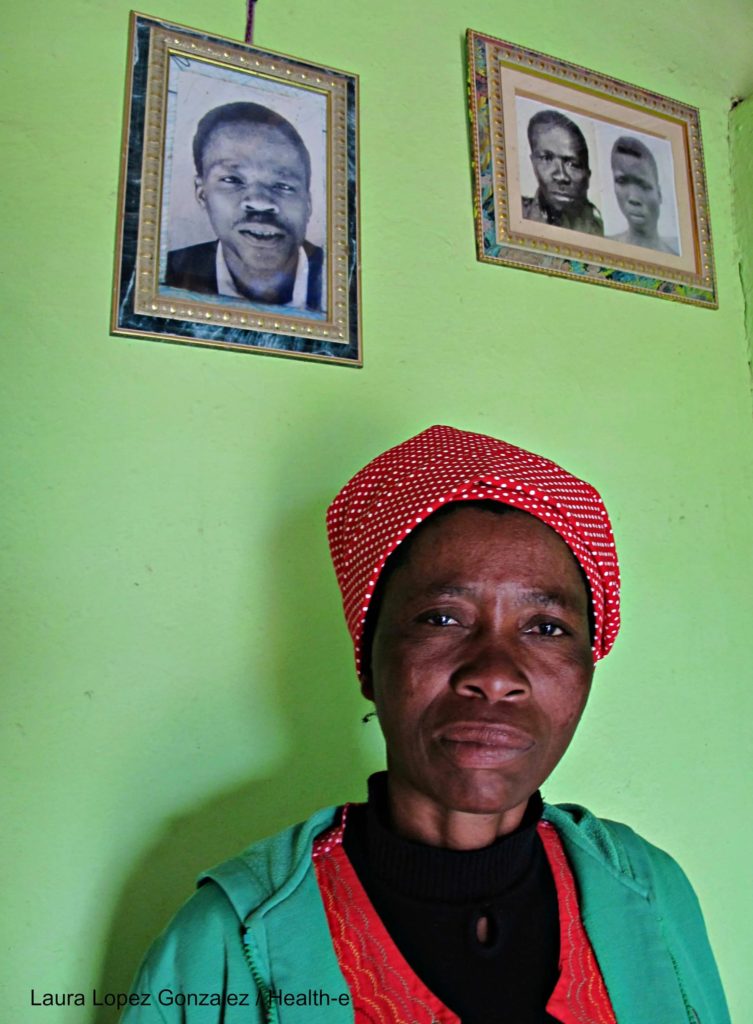
Nozuzile Mankayi
Nozuzile Mankayi is a gold widow.
Her husband, Thembekile Mankayi, spent 1979 to 1995 working underground in the Vaal Reefs gold mine, in South Africa. In 1993, Mankayi contracted pulmonary tuberculosis. He received treatment, improved slightly, and then suffered a recurrence, and had to leave. When he left, he was paid a mere R16,000 for his troubles. In 2006, he was diagnosed with silicosis.
In 2006, Thembekile Mankayi sued AngloGold Ashanti Ltd. for 2.6 million rand. He sued for dignity. Four years later, in August 2010, the Constitutional Court heard the case. Seven months later, March 2011, the Constitutional Court decided in Thembekile Mankayi’s favor.
Thembekile Mankayi died one week before the decision was announced.
It’s been three years, and his widow, Nozuzile Mankayi, has not received a single penny.
The South African compensation system is designed to strangle and choke gold widows to death. First, they have to submit their respective partner’s bodies to a post mortem. For many families, cutting open the body is forbidden. So, women have to be prepared to withstand often intense opposition and worse.
Second, women survivors receive far less than their partners would have.
Jenni Williams, of the Women’s Legal Centre, has argued, “The women who take care of miners are doing unpaid care work. At the moment we are developing a strategy around what would be the best way to litigate around this, but for now we are saying that unpaid care work should be recognised in the context of damages claims, but also in government planning and budgeting. There needs to be recognition that women contribute towards the economy in that they are working for free, which means that there is a saving. In other words, where you had to hire a nurse to look after the sick person, you would have the wife or daughter doing this for free. In terms of this class action suit, what we are proposing is that part of the damages award is a trust that is set up that acknowledges the saving that the mining companies would have by virtue of the fact that these men’s partners and daughters are going to look after them … The court should take that into account when they look at the damages claim because the person doing the harm is actually benefiting from the woman’s unpaid care work.”
It has been said, “Half the harm that is done in this world is due to people who want to feel important.” All the harm addresses women. When miners are attacked, in their lungs by dust and in their chests by bullets, women carry them, through the long day’s night and to the graveside. The persons doing harm benefit from that. They benefit from women’s unpaid labor and used up lives. They benefit from the tragedy of others deemed unheard and unseen: women.
Thembekile Mankayi waged a mighty campaign against predators who ultimately exploded and collapsed his lungs. Nozuzile Mankayi will not stay unheard or unseen. For her, and for the more than 200,000 former gold mineworkers and gold widows now engaged in a class action suit, the struggle continues.
(Photo Credit: Laura Lopez Gonzalez / health-e.org.za)